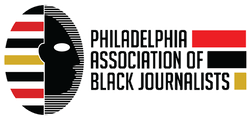REGINALD BRYANT: RECOLLECTIONS ON FOUNDING OF ABJ

Reginald Bryant was a founding member of ABJ and the Black Communicators Associated Inc. in Philadelphia. He was interviewed in 2003 by PABJ member Kristin Holmes.
____________________________________________
Reggie was working at several radio stations when ABJ was formed, including WPEN and WMGK.
Founding of ABJ was something the early journalists were “forced to do,” said Bryant. “There was absolutely blatant racism in the city’s newsrooms. The newsrooms were all white at the newspapers, radio and television, and those Blacks who were in (there) got terrible treatment.”
He saw the organization as an advocate for Black journalists who were being treated unfairly by these companies. He also hoped that the group would become a major force in making the industry more accountable.
Although a founder of ABJ and NABJ, he never officially joined, he said, and he never held any offices in either.
He was the “agent provocateur primarily. I resisted holding office because it gets you into the protocol and again we found that Black folks were operating with Roberts’ Rules of Order, many of whom had no idea about Roberts and the origin of parliamentary proceedings. It just seemed to me to be contradictory, so I never stood for office.”
“I was a founder because there was a dire necessity for people to act and think collectively about certain issues. Racism was overwhelming – it still is – and there was the thought that somehow joining forces and having the opportunities to express the conditions and circumstances that were extant in the Black communities in a way that was accurate and tasteful. Our stories were not being told well, the characterizations. You could still find someone who would write about a hulking large Black man or one who savagely attacked some poor white maiden.
“It was just offensive. It was still the 19th century in many ways and we wanted to change that.
“One of the ways I got into television is because I produced a film about teenage gangs in this town. That was done because the local TV stations were afraid if they went near these kids they would be injured, which is fine because it means I had a chance to learn how to make film OJT.
“During that period of time during the mid-and-late ‘60s we were resourceful persons, freelancers. Some few of us had jobs, all came together to say that we need each other if we’re going to first survive and secondly open this up to other people.
“I began to pull away when the focus seemed to be changing to social things. There was more enthusiasm and energy spent doing a party or barbeque or running for offices than there was dealing with the fact that very little had changed with regard to the attitudes, the prejudice and bias in the industry itself.”
How did the white press react to ABJ?
“Initially with skepticism, momentarily with apprehension, because they felt at one time we might become a force. And then they were able to dilute the organization into the members that they knew, some of whom I’m afraid gave them aid and comfort. Eventually it came to a point now where there is probably not much regard.
“(By the sixth and seventh year), there were no bold moves taken. You didn’t hear any circumstances in which general managers and even programs were assailed or that there were a profusion of editorial columns or insistence that there be dramatic change in the hiring practices. So you didn’t find many people throwing themselves on the journalistic sword, risking their lives or jobs.
“The early years I think they were righteous, focused and committed, and what happened subsequently is something that causes me great chagrin. They were, we were, right in our cause and we didn’t create the kind of legacy or the progeny among our younger peers to develop a continuum and so something changed somewhere. Other things crept in that were of no consequence, because if you are a change agent, you change.”
